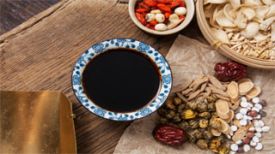Many people snore while sleeping. Snoring not only affects others' rest, but also makes them very tired. During the day, their limbs are weak and heavy, and they lack energy. In severe cases, snoring can make it difficult for them to breathe normally, leading to breathing pauses. Due to breathing pauses, when the blocked airway is flushed open, the snoring becomes particularly loud. If there are such situations mentioned above, it is necessary to take them seriously.
What is the reason for snoring? In traditional Chinese medicine, snoring is often caused by excessive phlegm and dampness in the body, and overweight people are more common, some even severe obesity. Abdominal circumference and neck circumference are severely exceeding the standard. People tend to prefer greasy or meat in their daily diet. These people have a white, thick, and greasy tongue coating, a fat and large tongue with tooth marks, and a light red tongue texture.
Usually, you may feel chest tightness, excessive phlegm, weak sweating, bloating, and loose stools. When sleeping, snoring is particularly loud, and one can't breathe for a long time, even waking up. During the day, they feel weak, tired, drowsy, and their mind is not clear.
From the above situation, it is obvious that the spleen is deficient with excessive dampness, and phlegm is obstructed internally. The spleen is the source of phlegm generation, and the lungs are the organs for storing phlegm. Phlegm turbidity rises into the lungs, blocking the airways. Therefore, the greater the phlegm dampness, the louder the snoring sound. At this time, it is necessary to strengthen the spleen, dispel dampness, regulate qi and dissolve phlegm. Is there any good method?
Today, I would like to share with you a recipe for strengthening the spleen, dispelling dampness, and resolving phlegm. The recipe includes Banxia, Chenpi, Poria cocos, licorice, Codonopsis pilosula, Atractylodes macrocephala, Acorus calamus, Yujin, Xuanfu flower replacing ocher, Platycodon grandiflorus, almonds, Su zi, Houpu, and Zhebei. Below, I will interpret this recipe for you.
Chenpi, Banxia, Poria cocos, licorice, this is Erchen Tang. Er Chen Tang is the total agent for treating phlegm in traditional Chinese medicine. Among them, Pinellia ternata is used to dry dampness and reduce phlegm, Chenpi is used to regulate qi and reduce phlegm, and Poria cocos is used to invigorate the spleen and promote diuresis, thereby eliminating phlegm. Adding Codonopsis pilosula, Atractylodes macrocephala, and Atractylodes macrocephala to dry and invigorate the spleen, remove dampness, promote spleen and stomach circulation, and eliminate the source of phlegm. Yujin, Xuanfu Flower, Almond, Su Zi, and Houpu can promote qi circulation, relieve depression, and lower qi and phlegm. Dai Zheshi is an important medicine for reducing adverse reactions, reducing phlegm and fire, reducing phlegm in Zhebei, promoting swallowing with Platycodon grandiflorus, and awakening the mind with Acorus calamus.
Prescriptions for strengthening the spleen, regulating qi, and resolving phlegm are used for typical types of phlegm turbidity and internal obstruction, as well as lung qi obstruction. Snoring for a long time requires flexible adjustments based on individual circumstances.
Some people, with a prolonged course of illness, may experience deficiency in the lungs, spleen, and kidneys, while others may eventually develop into deficiency in the heart and kidneys, with insufficient yang energy. At this point, it is necessary to re-examine and differentiate the symptoms to adjust the situation.
Kind reminder: Everyone's physical condition is different. The formulas provided in the article should be adjusted according to the situation of the enthusiast. It is recommended to seek guidance from a professional doctor.
The higher the humidity, the louder the snoring! A prescription for removing phlegm and dampness to treat snoring
Release time:2024-06-14 13:16:11
Reading:192
Word Count:3826
Subscribe to email


